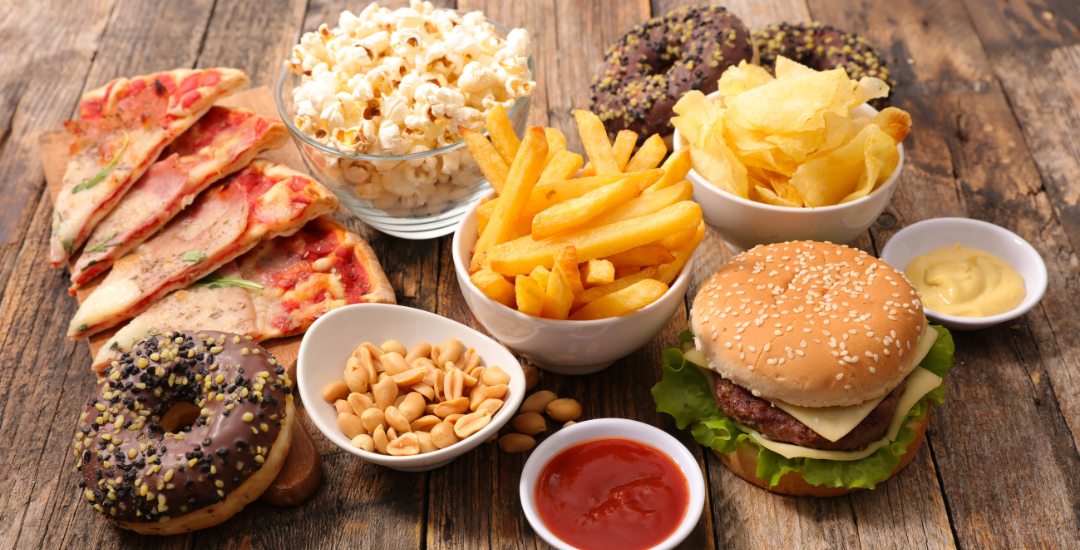The food industry is trying to kill you
Notwithstanding decades of mounting evidence, most people still refuse to consider just how much damage is being done to their health by regularly consuming processed foods. Just in the past nine months alone, dozens of studies have concluded that processed food consumption is causing a wide range of health issues—including shortening lives. Ultra-processed foods, or what most people refer to as “junk” foods, are especially damaging.
Here are five studies published in 2022 that may convince you to reduce processed food consumption—and hopefully increase consumption of fresh, natural foods.
1. REDUCED PHYSICAL FITNESS IN KIDS
A high intake of ultra-processed foods doesn’t take years to manifest itself negatively. The effects can be observed in children before they even start kindergarten.
A new study found that children ages 3 to 5 who consumed higher amounts of ultra-processed foods had poorer locomotor skills compared to children who consumed less of these foods. It also showed lower cardiovascular fitness in 12 to 15-year-olds who consumed more ultra-processed foods.
To conduct the study researchers at Sacred Heart University in Fairfield, Connecticut analyzed data from the National Health and Nutrition Examination Survey (NHANES).
The study was presented at the annual meeting of the American Society for Nutrition held in June 2022.
2. INCREASED RISK OF DEPRESSION & ANXIETY
A study of 10,359 adults found those who consumed the most ultra-processed foods had statistically significant increases in adverse mental health symptoms when compared with those who consumed the least amount. The adverse symptoms included mild depression, ‘mentally unhealthy days’ and ‘anxious days.’
Findings are generalizable to the entire U.S. as well as other Western countries with similar ultra-processed food intakes. The study was conducted by researchers from Florida Atlantic University’s Schmidt College of Medicine, in collaboration with researchers at other colleges.
The research was published online by Cambridge University Press in July 2022.
“The ultra-processing of food depletes its nutritional value and also increases the number of calories, as ultra-processed foods tend to be high in added sugar, saturated fat, and salt, while low in protein, fiber, vitamins, minerals and phytochemicals.” - Florida Atlantic University study, July 2022
3. INCREASED RISK OF COLORECTAL CANCER IN MEN
A study of 200,000 participants found that men who consumed high rates of ultra-processed foods had a 29% higher risk of developing colorectal cancer when compared to men who consumed the lowest amounts.
In that particular study, researchers did not find the same association in women; however, other studies on women have linked processed food consumption with breast cancer.
The study was a collaboration between researchers at Tufts University and Harvard University. Results were published in The British Medical Journal in August 2022.
4. INCREASED RISK OF DEMENTIA IN ELDERLY
According to research conducted at Tianjin Medical University in China, people who eat the highest amounts of ultra-processed foods have a higher risk of developing dementia compared to those who eat lower amounts. Researchers also found that replacing junk food in a person’s diet with unprocessed or minimally-processed foods was associated with a lower risk.
The study only shows an association between ultra-processed foods and dementia. It does not prove causation. Still, it is one more piece of the puzzle, when weighing all the evidence together, that points to the damage processed foods cause to mental well-being.
Though the research was conducted in China, it was an analysis of data on 72,000 UK residents tracked over a 10-year period. The study was published in Neurology in September 2022.
5. INCREASED RISK OF PREMATURE DEATH
A study from Brazil has found that increased consumption of ultra-processed foods was associated with more than 10% of all-cause premature, preventable deaths in 2019. Based on the current population researchers estimated this would amount to approximately 57,000 deaths per year in Brazil.
Notably, low-income countries such as Brazil are known to be low consumers of ultra-processed foods. Wealthier countries, where the average income is far greater, consume higher ratios of ultra-processed foods.
For comparison, the researchers reported that across all age groups and sex strata, consumption of ultra-processed foods ranged from 13% to 21% of total food intake in Brazil. Meanwhile, in the U.S. approximately 60% of calories are derived from ultra-processed foods—with even more calories coming from moderately-processed foods.
For this reason, researchers posit that the carnage caused by processed-food consumption would be even greater in the U.S.
The study was published in the American Journal of Preventive Medicine in November 2022.
What now? What do we do about this?
The simple answer is that we need to eat less processed foods and more real, whole foods. This is the biggest nutritional bang for your buck. In other words, the biggest impact you can have on your health is how much ultra-processed foods you eat. Is one cookie going to give you a heart attack? No. Is one bag of potato chips or one bowl of ice cream going to give you diabetes? Of course not. Health is not about the things we do once. It’s about creating a healthy pattern that we can stick to consistently.
The funny thing is, your body will adjust accordingly. Once you kick those salty, greasy, and overlay sugar foods to the curb, the next time you eat them, your digestive system will tell you what it thinks! I know mine sure does! Think of it as a natural negative reinforcement loop.
This isn’t something you need to do overnight. In fact, most changes are not. But the harsh reality is that if ultra-processed foods are a major player in your life, it’s time to make some changes…before it’s too late.
Need help with figuring out where to start? That’s where I come in! Send me a message and let’s figure it out. The most difficult part is taking those first steps.
Peace, love & kale!
Lindsay

